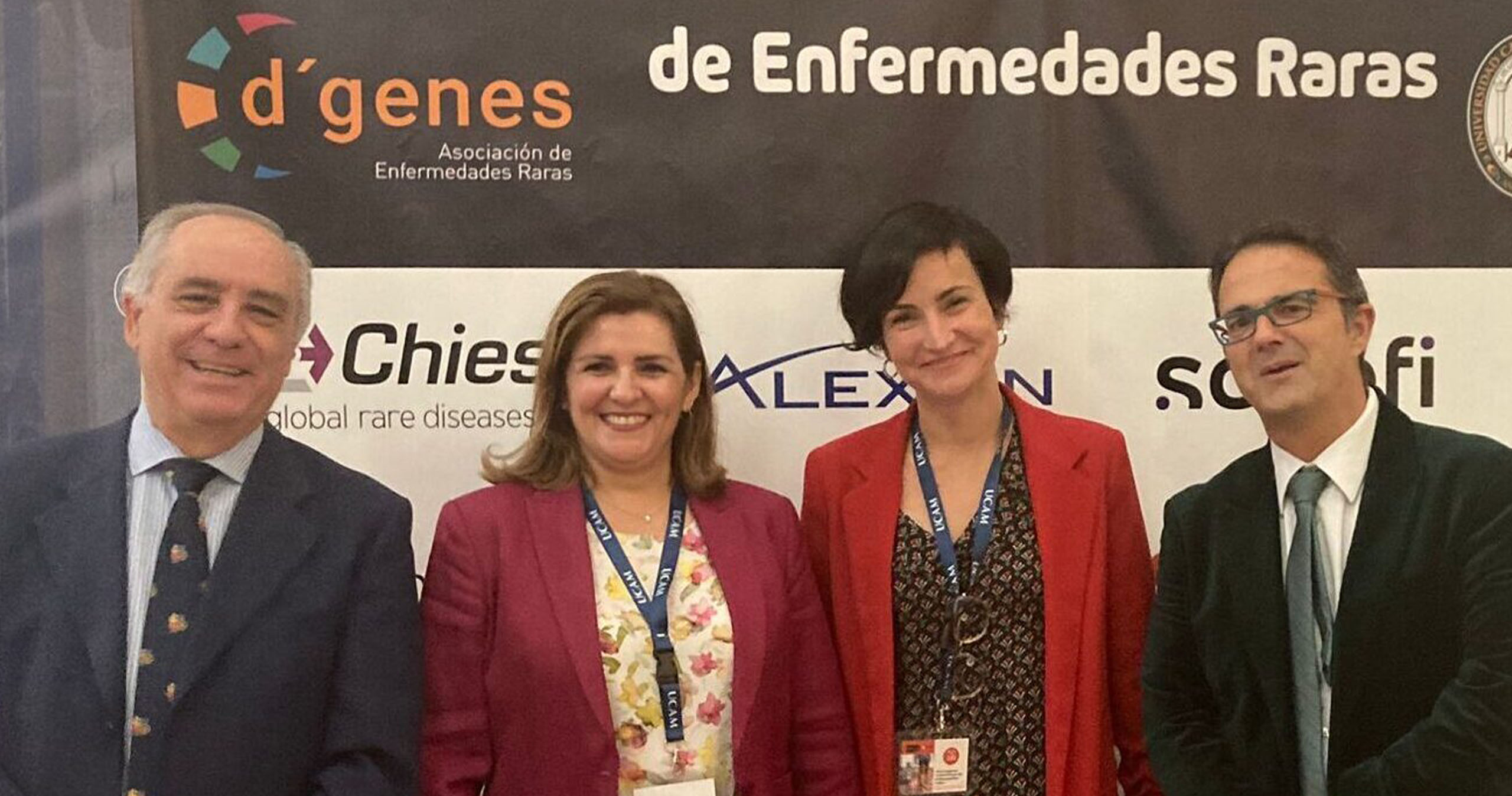The Spanish Association of Orphan and Ultra Orphan Drug Laboratories (AELMHU), represented by its director, Marian Corral, has participated once again in the International Congress on Rare Diseases of the association D'Genes at the Catholic University of Murcia.

The congress was held on October 25 and 26 and was attended by: patient associations, researchers, pharmacists, representatives of the public administration, psychologists specialized in rare diseases, pharmaceutical industry associations and other leading experts in the comprehensive approach to these rare diseases in Spain and several countries in Central and South America.
The Rector of the UCAM, Dr. Josefina García, the Regional Minister of Health of the Region of Murcia, Juan José Pedreño and the President of D'Genes, Juan Carrión inaugurated the conference.
The first round table of this XVI edition, in which the director of AELHU participated, focused on the difficulties in accessing orphan drugs. During her speech, Marian Corral highlighted the great boost that has been given to research into rare diseases, leading to the development of new and hopeful therapies with the capacity to improve the lives of patients with rare diseases.
Referring to the data of the latest AELMHU Clinical Trials Report for Rare Diseases 2022 in Spain, he highlights, among other data, that 25% of the trials that have been authorized in our country in the last year have been to investigate rare diseases, 2 points more than just a year ago and 97% promoted by commercial promoters.
As the director pointed out, for AELMHU this growth in research is a great opportunity that should stimulate the combined efforts of all the agents involved to place us at the forefront in terms of efficiency, response capacity and attractiveness as a country, and thus ensure that more trials continue to arrive and at earlier stages.

In terms of access to orphan treatments, and referring to the latest data published by AELMHU, updated to August 31, 2023, he highlighted the improvement observed in several of the report's indicators, especially in the financing of new products, 16 over the course of this year.
However, the number of orphan drugs continues to grow. Currently, there are 49 orphan drugs with an unfunded National Code and 57% of them already have one or more negative funding resolutions.
In view of this situation, and with the firm conviction that we must find solutions based on dialogue, commitment and the involvement of all the parties involved, the director recalled that we have been calling for years for a change both in the way drugs are evaluated and in the way they are financed. A change in the process that allows for greater clarity and predictability in the process and permits early access to treatments for patients, without forgetting the sustainability of the SNS. To this end, he recalled that the association has made a series of proposals, which have been updated and presented to the Ministry in the first half of 2023. These proposals have focused both on an early access model and on the evaluation and financing of orphan drugs. These recommendations have again been included in the contribution that AELMHU has made to the public consultation on the Royal Decree on Health Technology Assessment with the aim of developing, jointly and by consensus, a specific innovation assessment model for orphan drugs, which is characteristic of orphan drugs.

To conclude her speech, Marian emphasized that "we are living in a unique moment, full of social, technological and research changes, but also legislative changes in healthcare, both at European and national level. A moment that we must see as an opportunity and take advantage of it to create a scenario that allows innovation to reach all patients, since achieving this is our responsibility, that of all parties, and this must also be the commitment that unites us".
Miguel Ángel Calleja Hernández, Head of the Pharmacy Service of the Virgen Macarena University Hospital in Seville, Isabel Pineros, Access Director of Farmaindustria, and Jesús Cañavate Gea, Director General of Planning, Pharmacy and Health Research of the Region of Murcia, also participated in the round table as moderator.
